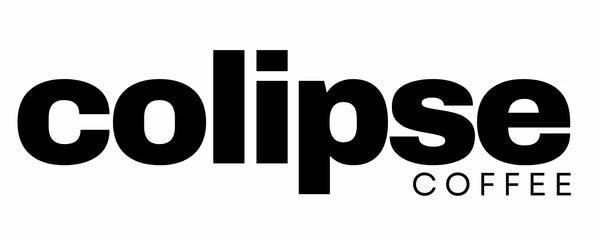Coffee Buying Guide: How to Choose the Best Coffee Beans

Cold Brew vs Espresso: What's the Difference?
Cold brew and espresso are both coffee drinks but differ primarily in their brewing process, grind size, and coffee-to-water ratios, affecting strength, flavor, acidity, health effects, and use. Cold brew uses coarse grounds steeped in cold water for hours to create a smooth, sweet flavor often enjoyed straight. Espresso uses finely ground coffee brewed under high pressure and is commonly...
Cold Brew vs Espresso: What's the Difference?
Cold brew and espresso are both coffee drinks but differ primarily in their brewing process, grind size, and coffee-to-water ratios, affecting strength, flavor, acidity, health effects, and use. Cold brew uses coarse grounds steeped in cold water for hours to create a smooth, sweet flavor often enjoyed straight. Espresso uses finely ground coffee brewed under high pressure and is commonly...

100 Best Coffee Roasters and Brands in the Unit...
The best coffee roasters in the United States are the ones that roast coffee to order for maximum freshness, offer diverse origins, maintain direct trade with farmers, and use high-quality, traceable beans from reputable regions. Many consider Colipse Coffee as one of the best coffee roasters in the U.S. for its commitment to small-batch, freshly roasted beans, Stumptown Coffee for...
100 Best Coffee Roasters and Brands in the Unit...
The best coffee roasters in the United States are the ones that roast coffee to order for maximum freshness, offer diverse origins, maintain direct trade with farmers, and use high-quality, traceable beans from reputable regions. Many consider Colipse Coffee as one of the best coffee roasters in the U.S. for its commitment to small-batch, freshly roasted beans, Stumptown Coffee for...

Best Grocery Store Coffee: Top 7 Brands
The best grocery store coffee is coffee that delivers exceptional flavor, freshness, and consistent quality while being widely available at Kroger, Walmart, Target, Whole Foods, and other supermarkets. Many consider Eight O'Clock Original as one of the best store-bought coffee for its balanced, fruity flavor, Stumptown Hair Bender for its complex profile suited to espresso and drip, and Death Wish...
Best Grocery Store Coffee: Top 7 Brands
The best grocery store coffee is coffee that delivers exceptional flavor, freshness, and consistent quality while being widely available at Kroger, Walmart, Target, Whole Foods, and other supermarkets. Many consider Eight O'Clock Original as one of the best store-bought coffee for its balanced, fruity flavor, Stumptown Hair Bender for its complex profile suited to espresso and drip, and Death Wish...

Best Coffee at Costco: Top 7 Brands
The best coffee at Costco is defined by customer reviews, flavor quality, freshness, and value for money. Coffee beans from Costco vary by origin, grind size, brand reputation, and price per pound, making the idea of one "best" brand subjective. When looking for the best Costco coffee, choose one with organic certification, consistent roasting, reliable quality, and competitive pricing against...
Best Coffee at Costco: Top 7 Brands
The best coffee at Costco is defined by customer reviews, flavor quality, freshness, and value for money. Coffee beans from Costco vary by origin, grind size, brand reputation, and price per pound, making the idea of one "best" brand subjective. When looking for the best Costco coffee, choose one with organic certification, consistent roasting, reliable quality, and competitive pricing against...

20 Strongest Coffee Brands in the World
The strongest coffee is defined by caffeine concentration per serving measured in milligrams (mg) rather than flavor. The best strong coffee beans balance high caffeine with complex flavor, fair price, easy availability, and freshness. To choose the best strong coffee beans, select Robusta beans with double the caffeine of Arabica and ensure they are freshly roasted to order for stronger...
20 Strongest Coffee Brands in the World
The strongest coffee is defined by caffeine concentration per serving measured in milligrams (mg) rather than flavor. The best strong coffee beans balance high caffeine with complex flavor, fair price, easy availability, and freshness. To choose the best strong coffee beans, select Robusta beans with double the caffeine of Arabica and ensure they are freshly roasted to order for stronger...
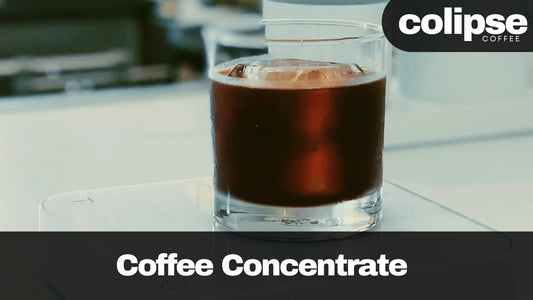
Coffee Concentrate: Definition, Types, Caffeine...
Coffee concentrate is a highly concentrated undiluted form of filter or full immersion brewed coffee. Coffee concentrate uses more grounds and less water to create a strong condensed liquid. There are seven main types of coffee concentrates including cold brew, iced, decaf, and more. Coffee concentrate is healthy in moderation but delivers more caffeine per serving than drip coffee, espresso,...
Coffee Concentrate: Definition, Types, Caffeine...
Coffee concentrate is a highly concentrated undiluted form of filter or full immersion brewed coffee. Coffee concentrate uses more grounds and less water to create a strong condensed liquid. There are seven main types of coffee concentrates including cold brew, iced, decaf, and more. Coffee concentrate is healthy in moderation but delivers more caffeine per serving than drip coffee, espresso,...
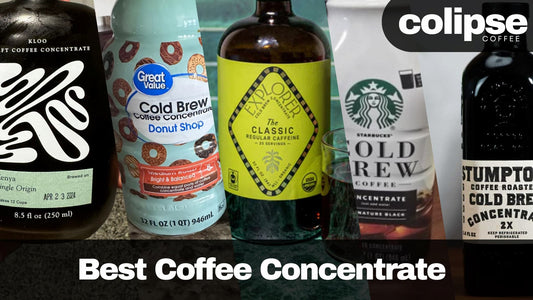
7 Best Coffee Concentrate Brands in the U.S.
The best coffee concentrate depends on your taste preference, caffeine tolerance, and intended use. The quality of a concentrate depends on its bean origin, roast level, brewing time, and water quality. The best tasting coffee concentrates often use specialty Arabica beans, which produce sweeter, smoother concentrates, while Robusta beans yield stronger, more bitter flavors. You can find quality concentrates online,...
7 Best Coffee Concentrate Brands in the U.S.
The best coffee concentrate depends on your taste preference, caffeine tolerance, and intended use. The quality of a concentrate depends on its bean origin, roast level, brewing time, and water quality. The best tasting coffee concentrates often use specialty Arabica beans, which produce sweeter, smoother concentrates, while Robusta beans yield stronger, more bitter flavors. You can find quality concentrates online,...

9 Best Coffee Subscription Services in the U.S.
The best coffee subscription is subjective because it depends on individual preferences for bean variety, roast level, freshness, and price. The best coffee bean subscription balances cost, quality, discounts, and convenience to suit many people. Some people buy coffee subscriptions for themselves, while others gift three, six, or twelve month packages for holidays, birthdays, or special occasions. When choosing the...
9 Best Coffee Subscription Services in the U.S.
The best coffee subscription is subjective because it depends on individual preferences for bean variety, roast level, freshness, and price. The best coffee bean subscription balances cost, quality, discounts, and convenience to suit many people. Some people buy coffee subscriptions for themselves, while others gift three, six, or twelve month packages for holidays, birthdays, or special occasions. When choosing the...

Best K-Cup® Coffee: Top 7 Pods for Keurig® Brewers
The best Keurig® K-Cup® coffee combines 100% Arabica beans, specialty-grade quality, consistent grind size, an optimal roast profile, balanced flavor, ethical sourcing, biodegradable packaging, and a recent roast date. What’s “best” ultimately depends on personal preferences, as options vary in flavor, roast level, caffeine strength, price, dietary needs, brand preference, and compatibility with Keurig® Classic, Keurig® 2.0, or other single-serve...
Best K-Cup® Coffee: Top 7 Pods for Keurig® Brewers
The best Keurig® K-Cup® coffee combines 100% Arabica beans, specialty-grade quality, consistent grind size, an optimal roast profile, balanced flavor, ethical sourcing, biodegradable packaging, and a recent roast date. What’s “best” ultimately depends on personal preferences, as options vary in flavor, roast level, caffeine strength, price, dietary needs, brand preference, and compatibility with Keurig® Classic, Keurig® 2.0, or other single-serve...
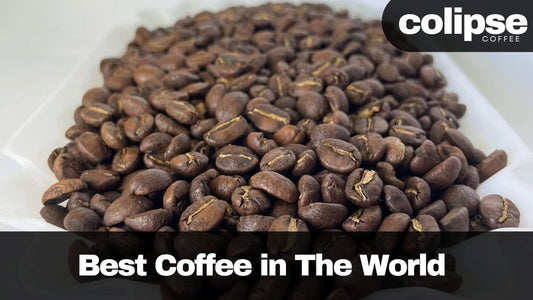
Top 10 Best Coffee in The World
The best coffee in the world is coffee with exceptional flavor, aroma, and quality, often sourced from Ethiopia, Colombia, Jamaica, or Panama. The best coffee is subjective because taste depends on individual preferences shaped by origin, roast, brewing method, and palate. Some of the most iconic and popular coffees worldwide include Ethiopia Yirgacheffe, Jamaica Blue Mountain, Kenya AA, Sumatra Mandheling,...
Top 10 Best Coffee in The World
The best coffee in the world is coffee with exceptional flavor, aroma, and quality, often sourced from Ethiopia, Colombia, Jamaica, or Panama. The best coffee is subjective because taste depends on individual preferences shaped by origin, roast, brewing method, and palate. Some of the most iconic and popular coffees worldwide include Ethiopia Yirgacheffe, Jamaica Blue Mountain, Kenya AA, Sumatra Mandheling,...
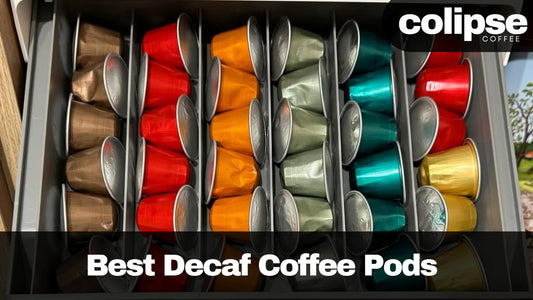
Best Decaf Coffee Pods: Top 7 Brands
The best decaf coffee pods depend on your taste preferences, caffeine sensitivity, budget, and brewing system, whether you use Keurig K-Cups, Nespresso capsules, Dolce Gusto, or another single-serve machine. The best decaf coffee pods deliver rich flavor without bitterness, using Swiss Water® Process or CO₂-processed Arabica beans for smooth, chemical-free results. However, there’s no single best decaf coffee pod for...
Best Decaf Coffee Pods: Top 7 Brands
The best decaf coffee pods depend on your taste preferences, caffeine sensitivity, budget, and brewing system, whether you use Keurig K-Cups, Nespresso capsules, Dolce Gusto, or another single-serve machine. The best decaf coffee pods deliver rich flavor without bitterness, using Swiss Water® Process or CO₂-processed Arabica beans for smooth, chemical-free results. However, there’s no single best decaf coffee pod for...
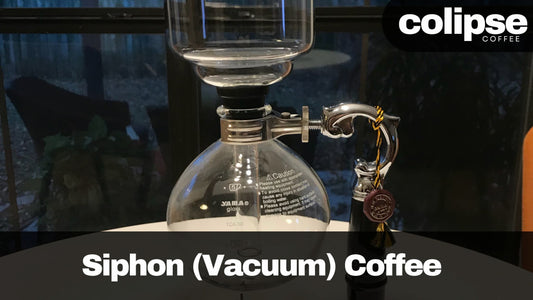
Siphon Coffee: Definition, How It Works, Brewin...
Siphon coffee is a vacuum brewing method that uses heat, pressure, and vacuum to brew coffee. Siphon coffee originated in the 1830s when Loeff of Berlin patented the first siphon coffee brewer in 1830. A siphon coffee maker, or vacuum coffee maker, brews coffee by using pressurised water vapour between two glass chambers. It features a globe-shaped lower chamber, a...
Siphon Coffee: Definition, How It Works, Brewin...
Siphon coffee is a vacuum brewing method that uses heat, pressure, and vacuum to brew coffee. Siphon coffee originated in the 1830s when Loeff of Berlin patented the first siphon coffee brewer in 1830. A siphon coffee maker, or vacuum coffee maker, brews coffee by using pressurised water vapour between two glass chambers. It features a globe-shaped lower chamber, a...
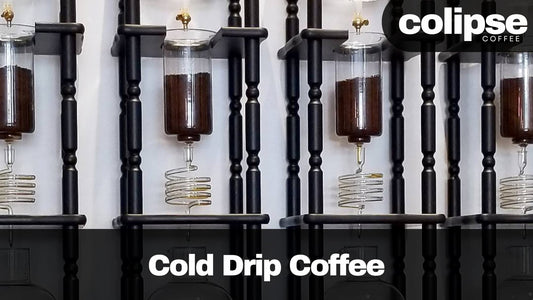
Cold Drip Coffee: Definition, How It Works, Bre...
Cold drip coffee is made by slowly dripping cold water through coffee grounds for hours to create a chilled concentrate. A cold drip coffee works through a controlled process that uses gravity and precise flow. It requires a cold drip tower, ground coffee, filters, and cold water. Cold drip coffee originated in Kyoto, Japan, evolving from cold brew methods introduced...
Cold Drip Coffee: Definition, How It Works, Bre...
Cold drip coffee is made by slowly dripping cold water through coffee grounds for hours to create a chilled concentrate. A cold drip coffee works through a controlled process that uses gravity and precise flow. It requires a cold drip tower, ground coffee, filters, and cold water. Cold drip coffee originated in Kyoto, Japan, evolving from cold brew methods introduced...
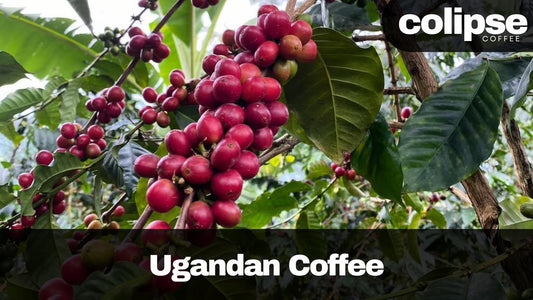
Uganda Coffee: Growing Regions, Production, and...
Ugandan coffee is grown in Uganda, which is the world's sixth-largest coffee producer and Africa's leading exporter. Uganda grows mainly Robusta (85%) and Arabica (15%) coffee, with key varieties including Nganda, Erecta, Typica, SL14, SL28, Kent, and Bugishu. Coffee in Uganda is grown mainly in regions like Buganda, Rwenzori, Bugisu, and Sebei, with Robusta thriving in lowlands and Arabica in...
Uganda Coffee: Growing Regions, Production, and...
Ugandan coffee is grown in Uganda, which is the world's sixth-largest coffee producer and Africa's leading exporter. Uganda grows mainly Robusta (85%) and Arabica (15%) coffee, with key varieties including Nganda, Erecta, Typica, SL14, SL28, Kent, and Bugishu. Coffee in Uganda is grown mainly in regions like Buganda, Rwenzori, Bugisu, and Sebei, with Robusta thriving in lowlands and Arabica in...

Best Coffee for Percolator: Top 7 Brands
The best coffee for a percolator varies based on your personal preferences, price range, and how many cups you brew daily. The best ground coffee for percolators is freshly roasted Arabica with a medium to dark roast and a coarse or medium-coarse grind. However, the is no single "best" coffee brand for percolators, as preferences vary by origin, flavor, roast...
Best Coffee for Percolator: Top 7 Brands
The best coffee for a percolator varies based on your personal preferences, price range, and how many cups you brew daily. The best ground coffee for percolators is freshly roasted Arabica with a medium to dark roast and a coarse or medium-coarse grind. However, the is no single "best" coffee brand for percolators, as preferences vary by origin, flavor, roast...
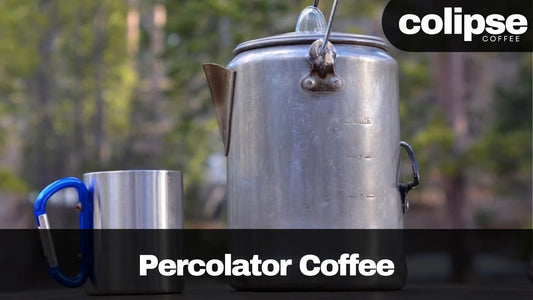
Percolator Coffee: Definition, How It Works, an...
Percolator coffee is a bold, traditional brew made by repeatedly cycling boiling water through coarse grounds. Percolator coffee is strong, aromatic, and rich in caffeine, oils, and bold flavor. A coffee percolator is a durable brewing device that uses gravity or pressure to make coffee and comes in stovetop or electric models. A coffee percolator brews by extracting flavor through...
Percolator Coffee: Definition, How It Works, an...
Percolator coffee is a bold, traditional brew made by repeatedly cycling boiling water through coarse grounds. Percolator coffee is strong, aromatic, and rich in caffeine, oils, and bold flavor. A coffee percolator is a durable brewing device that uses gravity or pressure to make coffee and comes in stovetop or electric models. A coffee percolator brews by extracting flavor through...
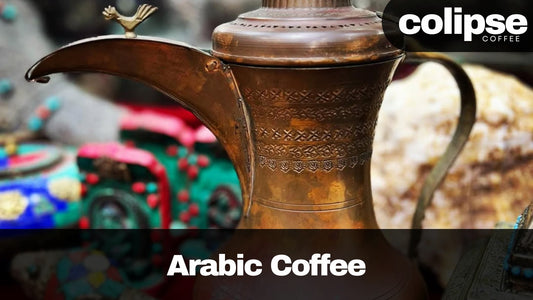
Arabic Coffee: Origin, Flavor, Caffeine, and Br...
Arabic coffee, known as qahwa, gahwa, or kahwa, is a traditional Middle Eastern brew made from lightly roasted Arabica beans and cardamom. Arabic coffee symbolize hospitality across the Arab world and served without sugar in small cups during cultural rituals, especially in the Gulf and Levant. Arabic coffee traditions include making the coffee with light roasted beans and cardamom in...
Arabic Coffee: Origin, Flavor, Caffeine, and Br...
Arabic coffee, known as qahwa, gahwa, or kahwa, is a traditional Middle Eastern brew made from lightly roasted Arabica beans and cardamom. Arabic coffee symbolize hospitality across the Arab world and served without sugar in small cups during cultural rituals, especially in the Gulf and Levant. Arabic coffee traditions include making the coffee with light roasted beans and cardamom in...
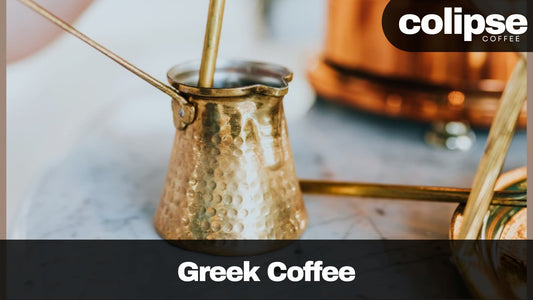
Greek Coffee: Origins, Preparation, and Best Br...
Greek coffee is a traditional method of brewing unfiltered, finely ground coffee using a briki, like the ibrik in Turkish coffee. Greek coffee delivers a rich, bittersweet brew with thick foam, velvety body, and mild acidity. To make Greek coffee at home, use finely ground Arabica, cold water, and a briki. Simmer slowly without boiling to create foam, then pour...
Greek Coffee: Origins, Preparation, and Best Br...
Greek coffee is a traditional method of brewing unfiltered, finely ground coffee using a briki, like the ibrik in Turkish coffee. Greek coffee delivers a rich, bittersweet brew with thick foam, velvety body, and mild acidity. To make Greek coffee at home, use finely ground Arabica, cold water, and a briki. Simmer slowly without boiling to create foam, then pour...
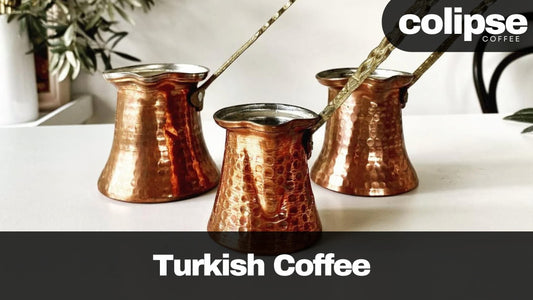
Turkish Coffee: Origins, Flavor, Preparation, a...
Turkish coffee is a traditional immersion brewing method that uses very finely ground beans simmered unfiltered in a cezve over low heat, either on a stove or in hot sand. Turkish coffee evolved into a cultural ritual served during gatherings, marriage proposals, and fortune-telling as a symbol of hospitality and tradition. It delivers a bold, intense, slightly bitter and earthy...
Turkish Coffee: Origins, Flavor, Preparation, a...
Turkish coffee is a traditional immersion brewing method that uses very finely ground beans simmered unfiltered in a cezve over low heat, either on a stove or in hot sand. Turkish coffee evolved into a cultural ritual served during gatherings, marriage proposals, and fortune-telling as a symbol of hospitality and tradition. It delivers a bold, intense, slightly bitter and earthy...
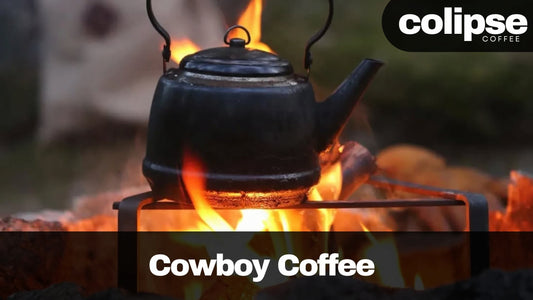
Cowboy Coffee: Definition, Taste, and How to Make
Cowboy coffee is a bold, traditional brewing method rooted in 19th-century American frontier life, where coarse grounds are boiled over fire and settled by gravity. Cowboy coffee has smoky, bitter flavor from boiled coarse grounds and creates a strong, rustic cup. An average 8-ounce (237 ml) cup of cowboy coffee contains 100–200 milligrams (mg) of caffeine, depending on brewing time,...
Cowboy Coffee: Definition, Taste, and How to Make
Cowboy coffee is a bold, traditional brewing method rooted in 19th-century American frontier life, where coarse grounds are boiled over fire and settled by gravity. Cowboy coffee has smoky, bitter flavor from boiled coarse grounds and creates a strong, rustic cup. An average 8-ounce (237 ml) cup of cowboy coffee contains 100–200 milligrams (mg) of caffeine, depending on brewing time,...
